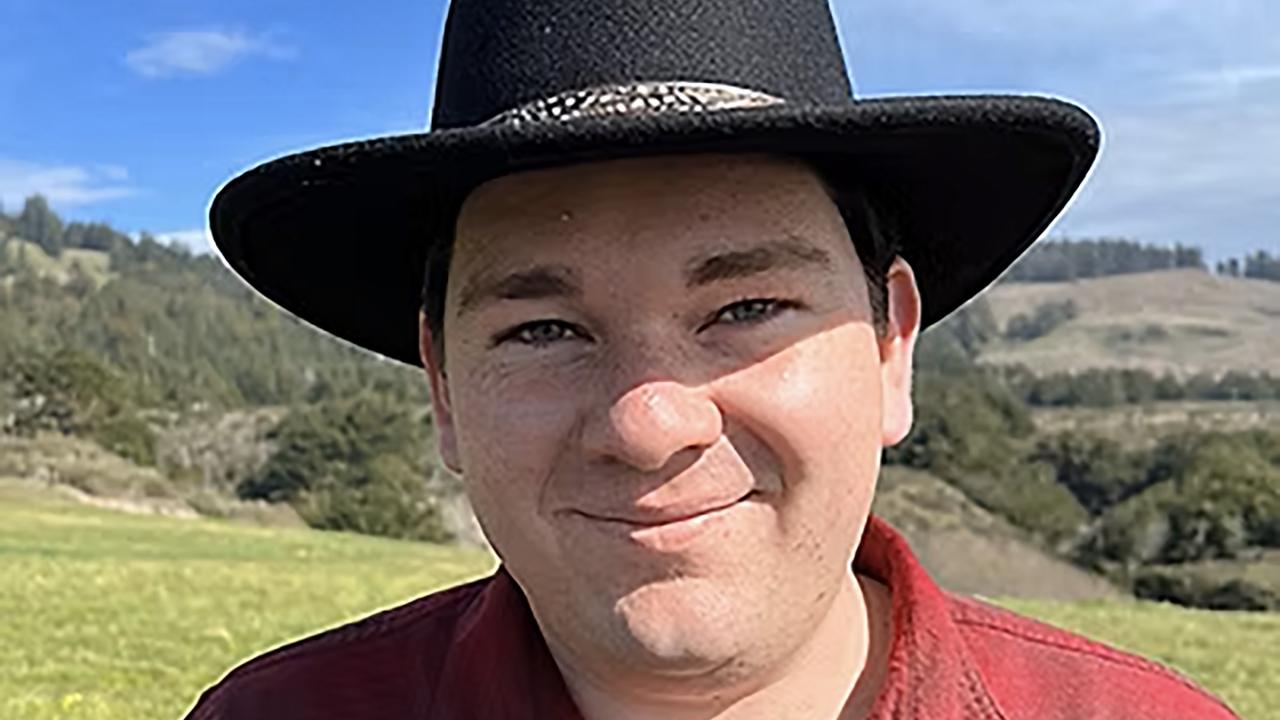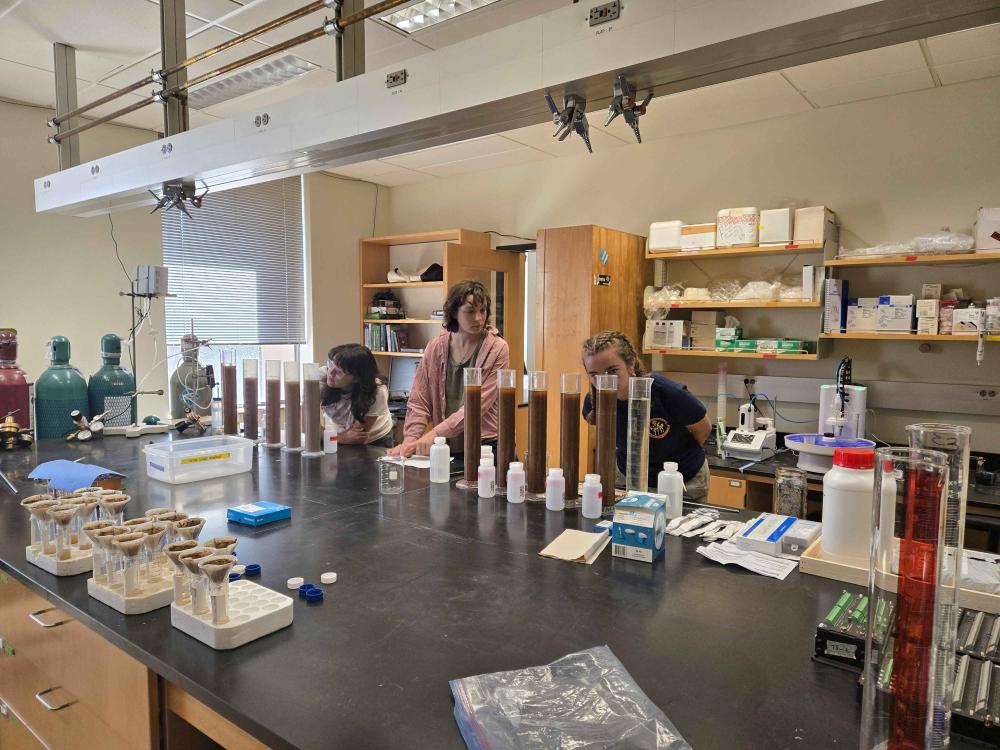
Meet Seth Whiteaker
Seth Whiteaker is a Junior Specialist working at the UC Davis Institute of the Environment. Whiteaker works with a team of Institute of the Environment-funded Sustainability Scholars on the California Collaborative for Natural Climate Change Solutions (C4NS).
What led you to want to study and research environmental solutions?
Seth Whiteaker: I started at Davis as an atmospheric science major with a plan to work on larger-scale climate initiatives like climate modeling. When I first chose Davis I was looking at studying in the Ecology program. After some initial hesitation to join the program thinking it was too easy, I realized this ease was a sign of how much I truly enjoy it. So, I made the switch to ecological restoration and took a soils class with Toby O'Geen. I found my passion in the soil class. It's amazing how much soil is an integrator of all of the atmosphere, lithosphere, hydrosphere, and myosphere. I think that that's really what pushed me into soil, specifically working on environmental problems.

What are your most significant research accomplishments?
Seth Whiteaker: I'm working on building a combined road, rail, and shipping network for the contiguous U.S., plus Hawaii and Puerto Rico, that is expressed in terms of carbon emissions. In the context of the project I'm working on now, we're looking at a mine with a certain kind of rock chemistry. We aim to answer how far you can travel before you're using more CO2 to transport that rock than you're going to sequester by spreading it. Because of the way that this network works, it's something that I think we could use to look at from composting facilities. How far can you travel before you're emitting more than you get from spreading the compost? Or, what are the CO2 costs of traveling only by road versus by road and rail between any two points? I think it's something that has a lot of potential, and that I haven't seen a lot of people working.
What are the short and long-term goals you hope to achieve with your research?
Seth Whiteaker: In terms of personal goals, this is something that I'm looking to roll into a PhD, but in terms of more "field goals", I think contextualizing and expanding the conversation around enhanced rock weathering and a lot of these other carbon dioxide removal strategies. These methods are started by people who have a lot of shared backgrounds within the field, like enhanced rock weathering, geochemists, geophysicists or chemical oceanographers. As the field grows in popularity, it's important to add in other perspectives, in particular with enhanced rock weathering, thinking about kind of the upstream socio-economic effects. Also, in the field, the different agronomic effects, thinking about how nicely it plays with farming as a profession.

Can you tell us more about the work you've been accomplishing with the Project Carbon Sustainability Scholars?
Seth Whiteaker: The group of Sustainability Scholars (Olivia Elliot, Hana Knoblich, Oskar O'Geen, Marcella Renati, Tatum Tamura, and Leah Theolier) has been extraordinarily helpful and just impressive, in terms of accomplishing the work. Early on, they were only preparing samples. When we bring the soil samples in, pretty much every analysis that we do is based on sieved soil. So soils where all the particles are smaller than two millimeters, okay, and we. From our first field season, we brought home over 1500 samples. We spent the first two to three months that they were with us just sieving soil, which was crazy. It was to the point where we were getting around 30 bags a day on average, which was almost like a commercial lab. Since then, we've expanded to many different types of analyses. So, they've been carrying out the analyses in terms of prepping for putting together solutions and extractions, and also doing the measurements on our equipment.
How do you stay motivated with the recent rollbacks in environmental research?
Seth Whiteaker: One thing that I think about often is, if I were an ecologist, looking at the way that funding worked before as an ecological system, it's apparent that it's not a system that's resilient or resistant, right? Like, if you went into a forest and everything in the forest depended on one species of tree, you would be a little worried. Similarly, in this research ecosystem, the vast majority of funding depends on one body's right to behave a certain way, right? This isn't to say that it's necessarily a good change but could be a good push to think about different ways to find funding, in particular, more community-centered and collaborative ways of doing research, and it kind of forces you to to imagine other futures and scenarios.